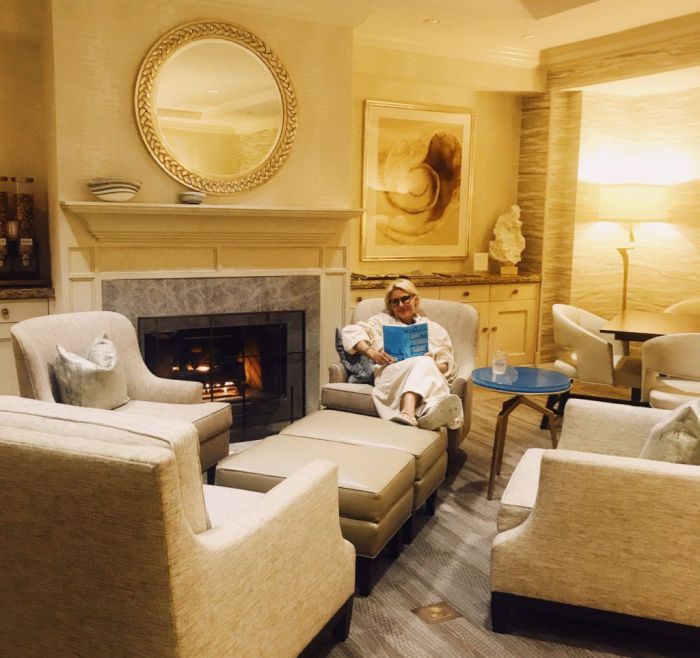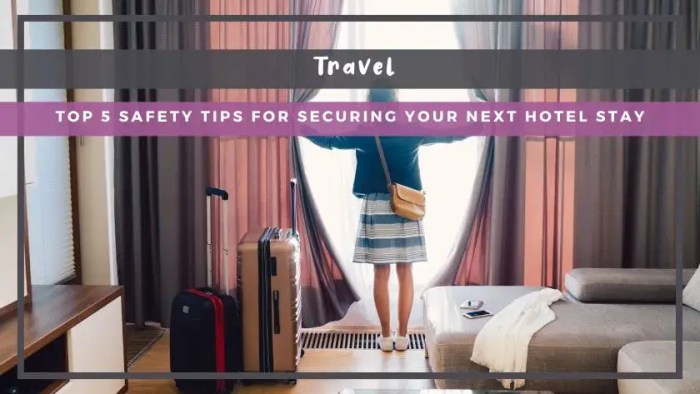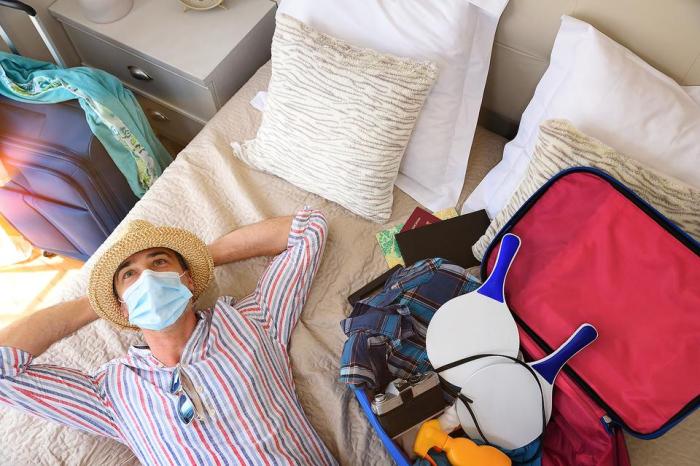How To Stay Safe In Luxury Hotels While Traveling Abroad
How to Stay Safe in Luxury Hotels While Traveling Abroad is essential for anyone looking to enjoy their journey without worries. Luxury hotels offer comfort and elegance, but they can also present unique challenges regarding safety. Understanding how to navigate these challenges can make your experience both enjoyable and secure.
From knowing the amenities of luxury hotels to being aware of local customs, every little detail contributes to a safer stay. Travelers must prioritize their safety by preparing adequately, verifying hotel security measures, and maintaining awareness during their visit. This guide aims to equip you with the essential knowledge to ensure your luxury hotel experience is as safe as it is pleasurable.
Understanding Luxury Hotels
Luxury hotels represent the pinnacle of comfort, service, and style in the hospitality industry. They are designed to provide an exceptional experience for travelers, combining elegance with high-quality amenities. These establishments prioritize guest satisfaction through personalized services and upscale accommodations, making them a popular choice for discerning travelers seeking a memorable stay.When defining a luxury hotel, several characteristics stand out.
Luxury hotels typically boast spacious guest rooms with high-quality furnishings, exquisite décor, and premium bedding. The service staff in these hotels is often trained to provide attentive, personalized service, ensuring that every need is met. Such hotels also focus on creating a unique atmosphere that reflects local culture while maintaining global standards of luxury.
Amenities and Services Offered by Luxury Hotels
Luxury hotels provide a wide range of amenities and services that enhance the overall guest experience. These offerings often include:
- Fine dining restaurants featuring renowned chefs and exquisite cuisine
- Spa and wellness centers offering various treatments, massages, and fitness facilities
- Concierge services available 24/7 to assist with reservations, travel arrangements, and personalized experiences
- High-speed internet access and state-of-the-art technology in guest rooms and meeting spaces
- Exclusive access to pools, lounges, and private beach areas
The importance of these amenities lies in their ability to elevate the travel experience. For instance, a luxury hotel with an acclaimed restaurant allows guests to savor gourmet meals without having to leave the property, making it a convenient yet indulgent option.
Common Locations for Luxury Hotels Around the World
Luxury hotels are strategically located in some of the world’s most desirable destinations. These locations often include:
- Major cities such as Paris, New York, and Tokyo, where guests can enjoy both cultural experiences and business conveniences
- Scenic coastal areas, like the Amalfi Coast and Caribbean islands, offering stunning views and relaxation
- Resort destinations, including Bali and the Maldives, known for their tranquility and natural beauty
- Historical sites and cultural hubs, where luxury hotels provide a unique blend of heritage and modern comforts
These locations not only provide guests with breathtaking views and rich experiences but also highlight the connection between luxury accommodations and the surrounding environment. For example, a luxury hotel in the heart of Paris might offer stunning views of the Eiffel Tower, enhancing the allure of the stay.
“Luxury is in each detail.” — Hubert de Givenchy
This quote encapsulates the essence of luxury hotels, where every detail is meticulously curated to ensure an unforgettable experience for each guest.
Importance of Safety While Traveling
Traveling is one of life’s greatest joys, allowing us to explore new cultures, indulge in unique cuisines, and create unforgettable memories. However, amidst the excitement, safety must remain a top priority. The reality is that risks can lurk even in the most luxurious settings, making awareness an essential aspect of any journey. Ensuring your safety while traveling not only protects you personally but also contributes to a worry-free experience.
According to the United Nations World Tourism Organization, millions of travelers face safety-related issues each year, from petty theft to serious incidents. In hotels, statistics indicate that approximately 30% of travelers have reported a safety concern during their stay, highlighting the reality that danger can be present even in five-star accommodations. The potential risks associated with luxury hotels can include theft, unauthorized access to rooms, or even health hazards due to inadequate security measures.
Potential Risks in Luxury Hotels
Luxury hotels often promise premium services and high-end experiences, yet they are not immune to risks. Understanding these potential dangers can help travelers take proactive steps to protect themselves. Some common risks include:
- Theft and Fraud: While luxury hotels typically invest in security, incidents of theft still occur. Guests may fall victim to scams or pickpockets both on the premises and in the surrounding areas.
- Unauthorized Access: Inadequate security can allow unauthorized individuals to roam the hotel, potentially leading to dangerous situations. It’s vital to remain vigilant and ensure doors and windows are locked.
- Health and Safety Issues: Luxury does not always guarantee safety. Poor maintenance of facilities, such as swimming pools or dining areas, can lead to accidents or health-related issues.
- Natural Disasters: Certain regions are prone to natural disasters. Travelers should be aware of the risks associated with their destination, including earthquakes, hurricanes, or floods, and know how to respond.
“Safety is not a gadget but a state of mind.” – Eleanor Everet
By understanding and addressing these potential risks, travelers can enjoy their luxury experiences with greater peace of mind, knowing they have taken steps to safeguard themselves. Awareness and preparation can make all the difference in ensuring a memorable and safe journey abroad.
Pre-Travel Safety Preparations
Before embarking on your journey to a luxury hotel abroad, thorough safety preparations can significantly enhance your travel experience. Taking the time to pack essential items and conduct proper research lays a solid foundation for a secure stay, allowing you to focus on enjoying your trip.Preparing for a safe trip involves a few key steps, including packing essential safety items, researching your hotel’s safety track record, and gathering important local emergency contacts.
These actions not only protect you but also give you peace of mind while exploring new destinations.
Essential Safety Items to Pack
Packing the right items can make a difference in ensuring your safety while traveling. Consider including the following essential safety items in your luggage:
- Travel Locks: Use these to secure your luggage and deter theft.
- First Aid Kit: A small kit with band-aids, antiseptic wipes, and pain relievers can be invaluable.
- Personal Alarm: This device can alert others in case of an emergency.
- Portable Charger: Keeping your phone charged is crucial for communication and navigation.
- Copy of Important Documents: Keep digital and physical copies of your passport, ID, and travel insurance.
Researching a Hotel’s Safety Record
Understanding the safety reputation of a hotel before booking can prevent unpleasant surprises. Key factors to consider include:
- Online Reviews: Read guest reviews on platforms like TripAdvisor to gauge the safety experiences of previous travelers.
- Travel Advisory Ratings: Check government websites for travel advisories related to your destination.
- Hotel Security Features: Investigate if the hotel offers security measures like surveillance cameras, secure entry points, and on-site staff.
- Incident Reports: Research any reported incidents at the hotel through news articles or travel forums.
Checklist for Local Emergency Contacts
Having a well-organized checklist of local emergency contacts and hotel information can be a lifesaver during your travels. Essential items to include are:
- Hotel Contact Number: Save the hotel’s phone number for quick access.
- Local Emergency Services: Know the local emergency numbers for police, fire, and medical assistance.
- Nearest Embassy or Consulate: Identify the location and contact details of your country’s embassy or consulate.
- Emergency Contacts: Keep a list of family or friends who can be contacted in case of an emergency.
“Safety is not a gadget but a state of mind.”
Eleanor Everet
Upon Arrival at the Hotel

Source: luxurytravelmom.com
Arriving at a luxury hotel should be a smooth and enjoyable experience. However, your safety is paramount during this transition. Understanding the procedures for verifying hotel identity and familiarizing yourself with the hotel’s security measures can go a long way in ensuring a secure stay. Here are essential practices to adopt immediately upon your arrival to establish a safe environment for your trip.
Verification of Hotel Identity and Security Measures
One of the first steps to ensure your safety is verifying the identity of the hotel and understanding its security protocols. Many luxury hotels implement strict measures to protect their guests. Upon arrival, you should:
- Confirm your hotel’s name and address with your travel documents or reservation confirmation.
- Use a trusted transportation service, such as those recommended by the hotel, to prevent any unauthorized drop-offs.
- Observe the lobby area for security personnel and any suspicious behavior. Luxury hotels often have security staff present to monitor the premises.
- Check for visible security features, such as surveillance cameras, secure access points, and staff identification badges.
Securing Personal Belongings in the Hotel
Once inside your room, securing your personal belongings is crucial. Luxury hotels may provide a sense of safety, but taking additional steps can further mitigate risks. Consider the following best practices:
- Use the in-room safe to store valuables, including passports, jewelry, and electronics. Ensure you set a secure code that is easy for you to remember.
- Keep your luggage locked and positioned out of sight; consider using a luggage lock for extra protection.
- Do not leave personal items unattended in public areas, such as the pool or lounge. Always keep an eye on your belongings.
Knowing Emergency Exits and Safety Protocols
Familiarizing yourself with the hotel’s emergency protocols and exit routes is essential for your safety. Understanding these procedures can make a significant difference in an unexpected situation. To do this, you should:
- Upon check-in, take a moment to review the emergency exit plan, which is often located on the back of your hotel room door or in the guest information booklet.
- Identify the nearest emergency exits and the safest routes to follow in case of an evacuation. Make a mental note of these paths.
- Be aware of the hotel staff’s instructions during emergencies. They are trained to assist guests to safety.
“A prepared traveler is a safe traveler. Familiarizing yourself with your surroundings and security measures can turn a luxury stay into a secure and enjoyable experience.”
Maintaining Personal Safety During Your Stay
When traveling abroad and staying in luxury hotels, personal safety should remain a priority. The environment may appear secure, but maintaining awareness and taking specific precautions can further enhance your protection. Here, we will explore effective methods to ensure your safety while enjoying the luxury of your surroundings.
Aware of Your Surroundings
Staying vigilant about your surroundings is crucial in any setting, especially in hotels. Being conscious of your environment can help you identify potential risks and respond appropriately. Here are key strategies to enhance your awareness:
- Regularly observe the hotel premises, noting emergency exits, stairwells, and the layout of your floor.
- Stay alert when navigating common areas, such as lobbies, elevators, and restaurants. Pay attention to individuals and activities around you.
- Avoid distractions such as excessive phone use while moving through the hotel; it can divert your attention from potential dangers.
Using Hotel Safes for Valuables
Utilizing hotel safes is a simple yet effective measure to protect your valuables during your stay. Storing personal items securely can significantly reduce the risk of theft. The importance of using hotel safes includes the following:
- Always secure your passport, extra cash, and electronics in the in-room safe, which is designed to deter theft.
- Familiarize yourself with the safe’s operation upon arrival, ensuring it functions correctly, and keep a record of the combination or key.
- Whenever leaving your room, double-check that the safe is locked and that no valuables are left unsecured in plain sight.
Interacting with Hotel Staff for Safety Assistance
Hotel staff are there to help, and knowing how to engage them can enhance your safety. Building a rapport with them can be beneficial. Consider the following guidelines when interacting with hotel personnel:
- Approach front desk staff with any concerns about safety or if you notice anything suspicious. They are trained to respond to such issues.
- Inquire about the hotel’s security measures, including surveillance systems and staff training, to feel more informed about your safety.
- Request assistance for navigating the hotel, especially if you need directions or have safety concerns about particular areas.
“Personal safety is not just about avoiding danger; it’s about being proactive and prepared in every situation.”
Utilizing Hotel Services for Safety
Luxury hotels offer a range of services designed not only to enhance comfort but also to ensure the safety of their guests. Understanding how to effectively utilize these services can greatly enhance your overall travel experience, providing peace of mind as you venture into unfamiliar surroundings. By leveraging the resources available within the hotel, travelers can significantly reduce potential risks.
Concierge Services and Personal Safety
Concierge services in luxury hotels are invaluable for personal safety. These professionals possess deep knowledge of the local area and can provide crucial information about safe places to visit, local customs, and potential hazards. They can also assist in making reservations for safe transportation options.Concierges can directly influence your safety in the following ways:
- Providing recommendations for reputable tour guides and excursions.
- Arranging airport transfers with reliable transportation services.
- Offering local insights on areas to avoid and safe neighborhoods.
- Helping you navigate emergency services or medical assistance if needed.
Security Services Offered by Luxury Hotels
Luxury hotels prioritize guest safety through various in-house security measures that promote a secure environment. These services can include:
- 24/7 front desk and surveillance systems monitoring the premises.
- Security personnel stationed in key locations throughout the hotel.
- Key card access to guest floors and rooms, limiting entry to authorized individuals.
- Emergency protocols that staff are trained to follow in case of unforeseen events.
Safe Hotel Transportation Services
Utilizing hotel transportation services can be a safe way to travel, especially in unfamiliar destinations. Many luxury hotels offer airport shuttles and private car services that ensure a secure transfer to and from the hotel. When using these services, consider the following tips for enhanced safety:
- Always verify transportation arrangements with the front desk before departure.
- Use hotel-arranged taxis or shuttles to avoid unregulated local transport options.
- Inform the driver of your destination and share it with a friend or family member.
- Keep essential items such as identification, hotel contact information, and emergency numbers easily accessible.
Dealing with Emergencies
In the event of an emergency, knowing the right steps to take can make a significant difference in ensuring your safety and that of others. Whether it’s a fire or a natural disaster, being prepared and informed can help you respond effectively.
Steps to Take in Case of a Fire or Natural Disaster in a Hotel
Understanding the procedures to follow during a fire or natural disaster is crucial. Most luxury hotels have emergency plans in place, including evacuation procedures. Familiarizing yourself with these can prepare you for any situation that may arise.
- Immediately locate the nearest exits and stairwells upon arrival. Check the emergency exit maps typically posted near your room door or in hallways.
- In case of a fire, activate the nearest fire alarm and call for help. Do not attempt to use the elevator.
- If you encounter smoke, stay low to the ground as you make your way to an exit.
- For natural disasters such as earthquakes, stay indoors, take cover under a sturdy piece of furniture, and avoid windows.
- Follow hotel staff instructions during an evacuation; they are trained to handle emergencies.
Reporting Suspicious Activity or Theft to Hotel Management
It is essential to report any suspicious behavior or theft promptly to ensure your safety and the security of other guests. Most luxury hotels prioritize guest safety and have protocols in place to handle such incidents.
- Approach the front desk or call the hotel’s security directly to report any suspicious activity.
- Provide detailed descriptions of the individuals or incidents you observed.
- If theft occurs, inform hotel management immediately and request to see the hotel’s security footage if applicable.
Emergency Numbers to Keep Handy While Traveling
Keeping a list of emergency numbers can be lifesaving during your travels. Here are essential contacts to have readily available:
- Local emergency services (e.g., police, fire, medical): Typically, the number for emergency services in many countries is 112.
- Your country’s embassy or consulate: This can provide assistance in case of legal troubles or emergencies.
- Hotel security: This is often a dedicated number provided by the hotel for immediate assistance.
- Local hospitals: Knowing the nearest hospital number can be crucial if medical assistance is needed.
Always stay aware of your surroundings and maintain communication with hotel staff regarding any emergencies.
Cultural Sensitivity and Safety

Source: thebeautraveler.com
Understanding local customs and laws is essential for ensuring safety while traveling, especially in luxury hotels where cultural nuances can be more pronounced. Being aware of the traditions, values, and regulations of a destination can significantly enhance your experience while minimizing potential risks. Embracing cultural sensitivity not only protects you but also fosters mutual respect with locals, creating a safer and more enjoyable environment.Respectful interactions can greatly enhance your safety and overall experience.
By being mindful of local customs, you can avoid misunderstandings that might arise from cultural differences. Here are some key points to keep in mind when navigating cultural sensitivity during your stay:
Understanding Local Customs and Laws
Familiarizing yourself with local customs and laws is vital. It can prevent unintentional offenses and ensure you remain safe in unfamiliar surroundings. Here are important aspects to consider:
- Research dress codes: Different cultures have varying expectations regarding attire, especially in religious or conservative areas.
- Learn basic greetings: A simple “hello” or “thank you” in the local language can convey respect and open doors to friendly interactions.
- Be aware of local customs: Practices such as dining etiquette or social norms can differ significantly; understanding them can enhance your interactions.
- Know the laws: Familiarize yourself with legal regulations, such as those related to alcohol consumption or photography in specific locations.
Cultural awareness not only enriches your travel experience but also promotes safety and understanding.
Respectful interactions can foster positive relationships. Here are tips for engaging with locals in a way that enhances safety:
Tips for Respectful Interactions
Engaging with locals can be rewarding; however, it is essential to approach these interactions with respect and understanding. Consider these strategies:
- Use polite language: Always use courteous language and tone, which can help build rapport and trust.
- Avoid sensitive topics: Steer clear of discussions related to politics or religion unless you are sure the local is open to those conversations.
- Ask for permission: If you wish to take photos or engage in certain activities, always ask for permission first; this shows respect for personal boundaries.
- Participate in local customs: Take part in festivals or events, as this shows appreciation for the culture and may lead to an enhanced sense of safety through community involvement.
Respecting local customs can create an atmosphere of goodwill, significantly enhancing your safety and comfort.
Cultural awareness is crucial, especially in luxury environments where expectations can be high. Understanding these subtleties can prevent misunderstandings and ensure a smooth experience. Here are some considerations:
Cultural Awareness in Luxury Hotels
Luxury hotels often cater to diverse clientele, and being culturally aware can enhance your stay. Here are important factors to be mindful of:
- Observe interactions: Pay attention to how hotel staff and other guests interact to guide your behavior appropriately.
- Understand tipping etiquette: Tipping practices vary; knowing local customs can prevent accidental disrespect.
- Respect privacy: In luxury settings, guests may value discretion; be mindful of personal space and privacy.
- Participate in cultural experiences: Many luxury hotels offer cultural activities, which can deepen your understanding and appreciation of local customs.
Being culturally sensitive not only enhances your travel experience but also contributes to a safer environment for all.
Post-Travel Safety Measures

Source: 30seconds.com
Returning home after a trip can bring a sense of relief and comfort, but it is essential to maintain safety even after leaving your destination. Post-travel safety measures help ensure that the experiences you had abroad do not compromise your safety at home. Taking these actions can protect you from potential risks and reinforce the valuable lessons learned during your travels.One crucial aspect of post-travel safety is reviewing your travel experiences to identify any potential risks or incidents that could have been avoided.
Sharing these insights not only enhances your personal safety but also contributes to the safety of fellow travelers.
Actions to Take After Returning Home
Upon returning home, consider the following actions to ensure ongoing safety:
- Change passwords: Update online passwords, especially for accounts used while traveling, to protect against potential hacking.
- Review bank and credit card statements: Check for unfamiliar transactions that may indicate fraud or theft.
- Secure belongings: Store travel documents, electronics, and personal items in a safe place to prevent unauthorized access.
- Monitor health: Be aware of any health issues that may have arisen during your travels, including symptoms of illness or fatigue.
- Reflect on experiences: Take time to think about your travel experiences and what safety measures worked well, as well as those that could be improved in the future.
Importance of Sharing Travel Experiences
Sharing travel experiences with friends, family, and online communities can promote awareness about safety issues encountered during your trip. This exchange of information fosters a sense of community and helps others avoid similar situations. Discussing safety challenges can also lead to valuable tips and strategies for future travelers, creating a collective knowledge base.
“Sharing our travel stories can empower others to travel smart and stay safe.”
Evaluating Hotel Safety Experiences
Evaluating your hotel stay can help improve future travel planning. Consider the following points to assess the safety of your accommodations:
- Rate your hotel’s security measures: Consider the presence of security personnel, surveillance cameras, and access controls to rooms.
- Evaluate staff responsiveness: Reflect on how well hotel staff addressed safety concerns or emergencies during your stay.
- Assess location safety: Analyze the surrounding area for safety indicators, such as lighting, foot traffic, and proximity to emergency services.
- Document your experience: Keep notes on both positive and negative aspects of your stay, which can guide your future hotel choices.
Summary
In summary, staying safe in luxury hotels while traveling abroad involves a combination of research, preparation, and awareness. By understanding the unique aspects of luxury accommodations and following practical safety tips, you can protect yourself and enjoy your travels to the fullest. Remember, safety is not just about precautions; it’s about embracing your journey with peace of mind.
Common Queries
What should I do if I feel unsafe in my hotel?
If you feel unsafe, immediately contact hotel security or management. Trust your instincts and consider changing rooms or even hotels if necessary.
Are luxury hotels equipped with security personnel?
Yes, most luxury hotels have trained security personnel on-site to ensure guest safety and address any security concerns that may arise.
What are some signs of a safe hotel?
Look for hotels with secure access points, surveillance cameras, visible staff presence, and positive reviews regarding safety from past guests.
Should I use hotel safes for my valuables?
Yes, it’s advisable to use hotel safes to store valuables, as they provide an extra layer of security for your important items.
How can I stay informed about local safety issues during my stay?
Stay updated by checking local news sources, asking hotel staff, or using travel apps that provide information about safety and other important issues.









